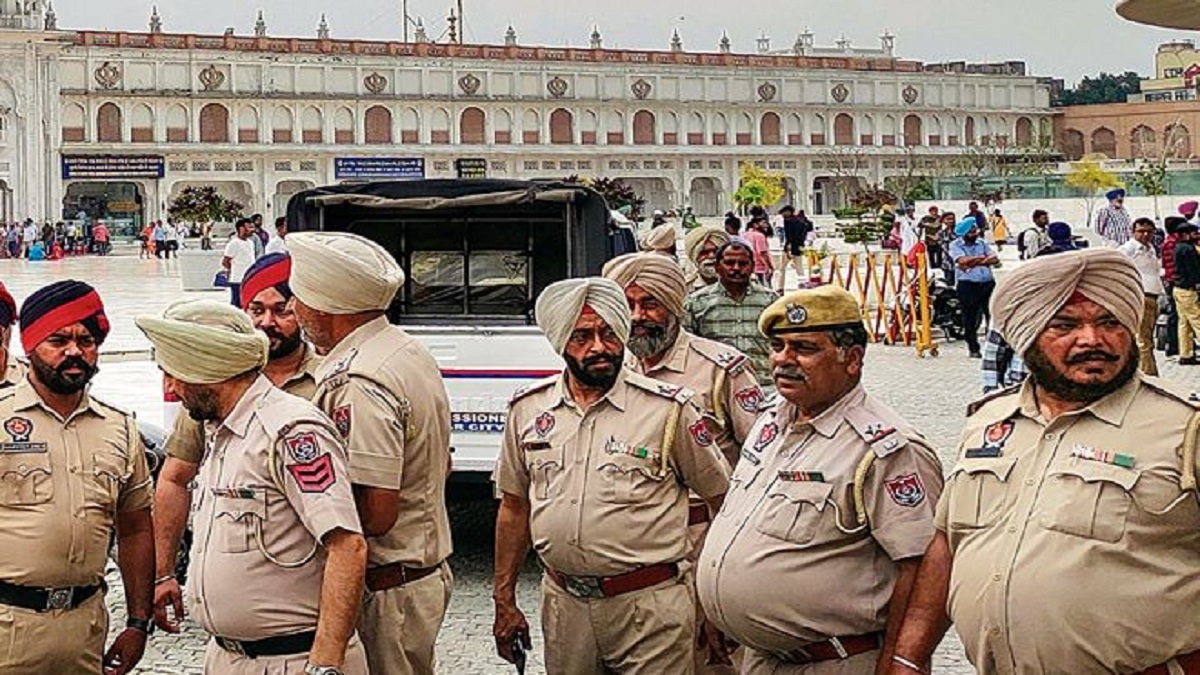 |
|
The recent controversy surrounding the alleged involvement of a British soldier, Jagjeet Singh, in a series of bombings in Punjab, India, has ignited a diplomatic dispute between the UK and India. The Punjab Police, led by DGP Gaurav Yadav, asserted that their investigation into the Khalistan Zindabad Force (KZF), a Pakistan-backed terrorist organization led by Ranjeet Singh Nita, uncovered evidence implicating Jagjeet Singh, who allegedly operated under the pseudonym Fateh Singh Baaghi. This assertion is based on the confession of arrested terrorists and thorough investigation, according to the Punjab Police. The police claim that Jagjeet Singh, a resident of Mainpur village in Tarn Taran who moved to the UK in 2010 and joined the British Army in 2013, is suspected of coordinating attacks targeting police stations and Hindu leaders in Punjab. These attacks, which employed bombs and IEDs, occurred between October and December, resulting in significant damage and raising serious security concerns within the region.
However, the UK Ministry of Defence (MoD) vehemently denies the Punjab Police's claims. Rhian Shillabeer, a communication officer for the MoD, stated unequivocally that no one by the name of Jagjeet Singh, or any similar pseudonym, is currently serving in the British Army. She further clarified that the MoD has not received any communication from Indian authorities regarding the alleged involvement of a British soldier in the Punjab bombings. This stark contradiction highlights the significant disagreement between the two nations regarding the evidence presented and the conclusions drawn. The conflicting accounts raise crucial questions about the reliability of the evidence presented by the Punjab Police, the potential for misidentification, and the need for thorough verification of such sensitive information before making public pronouncements.
The Punjab DGP, Gaurav Yadav, despite the UK's denial, remains firm in his assertion that the investigation's findings are accurate. He has stated that the matter will be pursued through official channels with the British authorities. This resolute stance underscores the confidence the Punjab Police has in their investigative process and the strength of the evidence they believe they possess. The potential consequences of this dispute extend beyond a simple disagreement between law enforcement agencies. It could strain diplomatic relations between the UK and India, particularly considering the sensitive nature of cross-border terrorism and the ongoing concerns regarding the activities of Khalistani separatist groups. The incident highlights the complexities of international cooperation in combating terrorism and the challenges of verifying information across national borders.
The case highlights a critical issue regarding the verification of information and the potential for misinterpretations or deliberate disinformation in investigations involving international actors. The discrepancy between the Punjab Police's assertion and the UK MoD's denial necessitates a thorough and transparent investigation to uncover the truth. Independent verification of the evidence, including forensic analysis, witness testimonies, and cross-referencing with other intelligence agencies, is crucial to determining the accuracy of the claims made by both sides. The outcome of this investigation will have significant ramifications for both India and the UK, influencing their bilateral relations and their approach to combating transnational terrorism.
Furthermore, the case raises broader questions about the effectiveness of intelligence sharing and cooperation between countries in combating terrorism. The lack of communication or collaboration between the Indian and British authorities, as highlighted by the MoD's statement, underscores a potential gap in information sharing mechanisms that needs to be addressed. Improving communication channels and establishing clearer protocols for the exchange of sensitive intelligence could prevent similar conflicts and strengthen the collective response to transnational terrorist threats. The episode also highlights the challenges faced by law enforcement agencies in dealing with individuals who may have dual citizenship or operate across international borders, making investigations significantly more complex and requiring greater international cooperation.
Source: UK Defence Ministry refutes Punjab Police claim of British soldier's involvement in terror module
